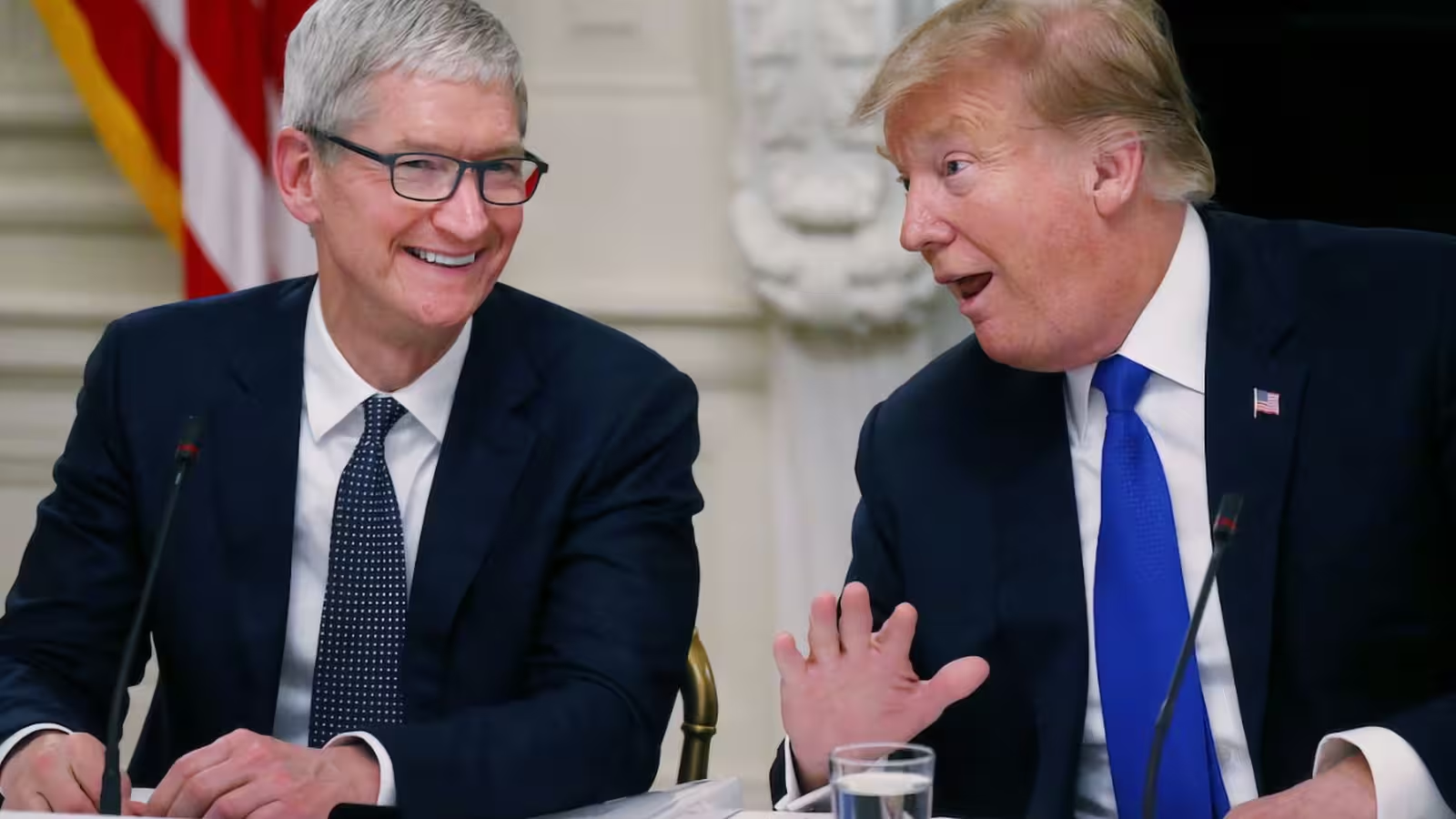3 Minutes
Unexpected 25% Tariff Hits Imported iPhones
In a move that has sent shockwaves through the technology sector, former President Donald Trump announced on May 23, 2025, that every iPhone imported into the United States would be subject to a substantial 25% tariff. While tariffs are typically justified as strategies to bring jobs and manufacturing back to American soil, new reports suggest that Apple's leadership may have been personally targeted due to recent tensions with Trump.
The Background: Apple's Notable Absence and Traces of Retaliation
According to a New York Times investigation, the decision to impose the fresh iPhone tariff came shortly after Apple CEO Tim Cook declined an invitation from Trump to join an official delegation of top American executives on a trip to the Middle East between May 13 and May 16. Executives from leading technology and finance companies, including Nvidia, AMD, OpenAI, BlackRock, and Citigroup, attended the event—yet Apple was noticeably absent.
Anonymous sources reveal that Tim Cook’s choice not to travel caused frustration in the Trump camp, with the president making several remarks highlighting Cook's absence during high-profile meetings. Notably, Trump is reported to have told Nvidia CEO Jensen Huang, “Tim Cook isn’t here, but you are,” underscoring a growing rift. This period of tension was followed almost immediately by the announcement of the new tariff, officially justified by Apple’s reliance on overseas manufacturing.
Unanticipated Announcement and Industry Consequences
The 25% import tariff announcement, made via Trump’s Truth Social platform, surprised both Apple and senior members of Trump’s own administration. Unlike many previous policy changes, the new rule came with little warning and few specifics, leaving Apple facing unprecedented uncertainty ahead of the key iPhone 17 launch in September.
Apple had previously managed to avoid the bulk of earlier "reciprocal" tariffs by accelerating US-bound iPhone shipments. However, insiders say that this time, the company is unlikely to repeat such a successful maneuver and expects its June quarter tariff payments to balloon—potentially surpassing $900 million, depending on additional policy developments. Meanwhile, an ongoing national security review into the semiconductor industry threatens to add yet another layer of complexity and possible extra tariffs for Apple and the broader tech sector.
Comparisons and Market Impact
No other US-based tech giant has faced such direct financial pressure this year, making Apple’s situation unique. With the iPhone 17’s features—enhanced AI processing, improved camera systems, and longer battery life—generating excitement, the new tariff could impact pricing and supply, giving rivals like Samsung and Google a temporary advantage in the premium smartphone market.
Apple’s Response and Shifting Relationships
Although Apple has not officially commented on the new tariffs or the speculation regarding Tim Cook’s relationship with Trump, it’s clear this marks a deep shift from previous years. Tim Cook’s pragmatic engagement with the Trump administration once secured Apple key exemptions, but recent months have seen Cook rebuff White House invitations—even opting to join a technology summit virtually rather than appear in person.
Key Takeaways for Lithuanian Tech Enthusiasts
This situation exemplifies just how closely US-China trade tensions and high-stakes political decisions can impact the global technology market. With tariffs set to affect not only pricing but possible innovation cycles, Lithuanian consumers and professionals are watching closely as Apple navigates one of its most challenging chapters in US market history.


Comments